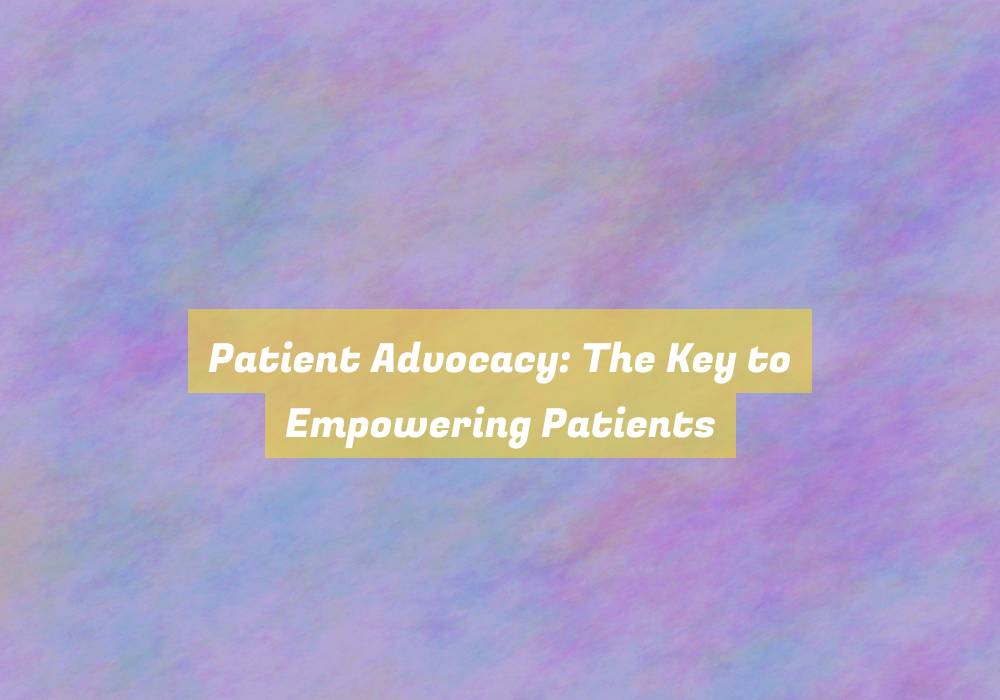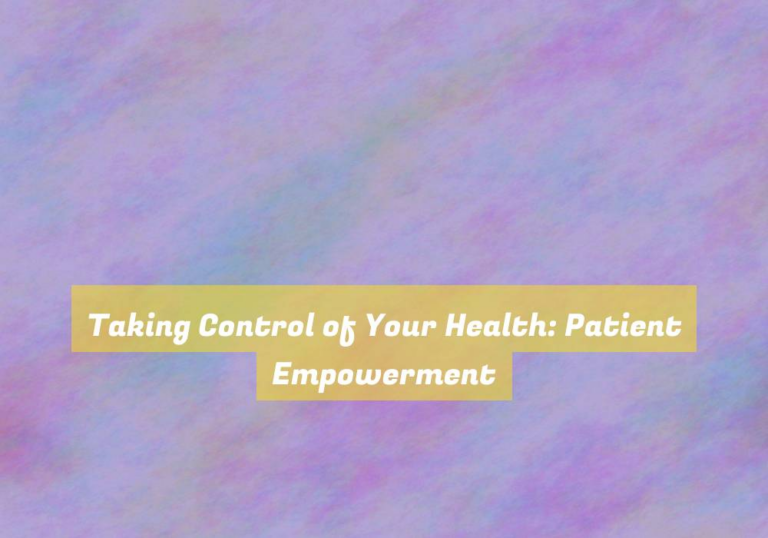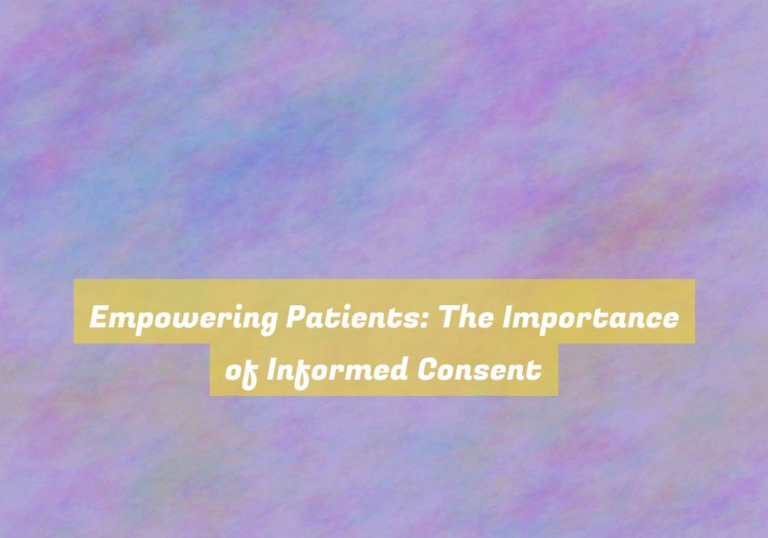Patient Advocacy: The Key to Empowering Patients
Imagine you are embarking on a journey through a dense forest, equipped with a map but no guide. You have the tools to navigate, but without someone to help you interpret the terrain and point out potential dangers, the journey becomes daunting and uncertain.
Patient advocacy functions as that knowledgeable guide, empowering individuals to navigate the complexities of the healthcare system with confidence and clarity. ItG??s not just about providing information; itG??s about offering support and amplifying the patientG??s voice in a system that can often feel overwhelming and impersonal.
As you explore the crucial role of patient advocacy, youG??ll discover how it can transform the healthcare experience for both patients and providers, ultimately leading to improved outcomes and greater satisfaction.
The Role of Patient Advocacy
Patient advocacy involves actively supporting and promoting the rights and needs of patients within the healthcare system. As a patient advocate, you play a crucial role in ensuring that patients receive the best possible care. Your responsibilities include empowering patients to make informed decisions about their health, providing support and guidance through complex medical processes, and ensuring that their voices are heard and respected.
In this role, you actively work to safeguard the rights of patients, ensuring that theyG??re treated with dignity and receive the appropriate care and attention. You serve as a liaison between patients and healthcare providers, advocating for the best interests of the patient and helping to bridge any communication gaps that may arise.
Your advocacy extends beyond individual patient interactions, as you also work to identify systemic issues within the healthcare system and advocate for positive changes. By actively engaging with healthcare organizations and policymakers, you strive to improve the overall quality and accessibility of healthcare for all patients.
In essence, your role as a patient advocate is to be a dedicated and compassionate voice for those navigating the complexities of the healthcare system, ensuring that their needs are met and their rights are upheld.
Benefits of Empowering Patients
Empowering patients with knowledge and resources leads to better health outcomes and more informed decision-making. When patients are empowered with information about their conditions, treatment options, and self-care strategies, they become active participants in their healthcare journey. This empowerment can result in improved adherence to treatment plans, better management of chronic conditions, and a reduced risk of complications. Additionally, empowered patients are more likely to engage in open and effective communication with their healthcare providers, leading to a collaborative approach to care that takes into account the patientG??s preferences and values.
Moreover, empowered patients are better equipped to navigate the complexities of the healthcare system. They can advocate for themselves, ask relevant questions, and seek out the most suitable care options. This can lead to a more efficient use of healthcare resources and a reduction in unnecessary tests, procedures, and hospital readmissions.
Ultimately, empowering patients not only benefits the individuals themselves but also contributes to the overall improvement of the healthcare system by promoting patient-centered care and shared decision-making.
Strategies for Effective Advocacy
To effectively advocate for yourself or a loved one in a healthcare setting, itG??s important to familiarize yourself with the available resources and communication strategies. Start by learning about your rights as a patient. Understand the healthcare system, including insurance coverage, medical records access, and the process for filing complaints or appeals. Utilize patient advocacy organizations and support groups, which can provide valuable information, guidance, and emotional support.
Effective communication is crucial in advocating for the best care. Be prepared with specific questions and concerns for healthcare providers. Take notes during appointments and ask for clarification when needed. ItG??s also important to assertively express your needs and preferences while being respectful and open to collaboration.
Another strategy is to build a strong support network. This can include family members, friends, or professional advocates who can help navigate complex medical information and provide additional perspectives.
Lastly, donG??t hesitate to seek a second opinion if you have doubts about a diagnosis or treatment plan. Remember, effective advocacy involves being proactive, well-informed, and persistent in pursuit of the best possible healthcare outcomes.
Integrating Advocacy in Healthcare Systems
Healthcare systems can enhance patient advocacy by fostering a culture of open communication and collaboration. When healthcare providers prioritize patient advocacy, it leads to better outcomes and higher patient satisfaction. Integrating advocacy in healthcare systems involves creating avenues for patients to voice their concerns and actively participate in decisions about their care. This can be achieved by implementing patient advisory councils or including patients in quality improvement initiatives.
By actively involving patients in the decision-making process, healthcare systems can ensure that the care provided is patient-centered and aligns with individual needs and preferences.
Furthermore, educating healthcare professionals about the importance of patient advocacy is crucial. Training programs can help them develop the skills needed to effectively advocate for their patients and involve them in shared decision-making. Additionally, leveraging technology to streamline communication between patients and providers can facilitate advocacy efforts. Electronic health records and secure messaging platforms can empower patients to access their health information and communicate with their healthcare team, fostering a collaborative approach to care.
Ultimately, integrating advocacy in healthcare systems requires a concerted effort to prioritize patient voices and actively involve them in their care journey.
Conclusion
In conclusion, patient advocacy is crucial for empowering patients and ensuring they receive the care and support they deserve. By actively advocating for their own needs and rights, patients can take control of their healthcare journey and improve their overall experience.
Healthcare systems must integrate advocacy to truly prioritize patient-centered care. ItG??s time to empower patients and give them the tools they need to advocate for themselves.







